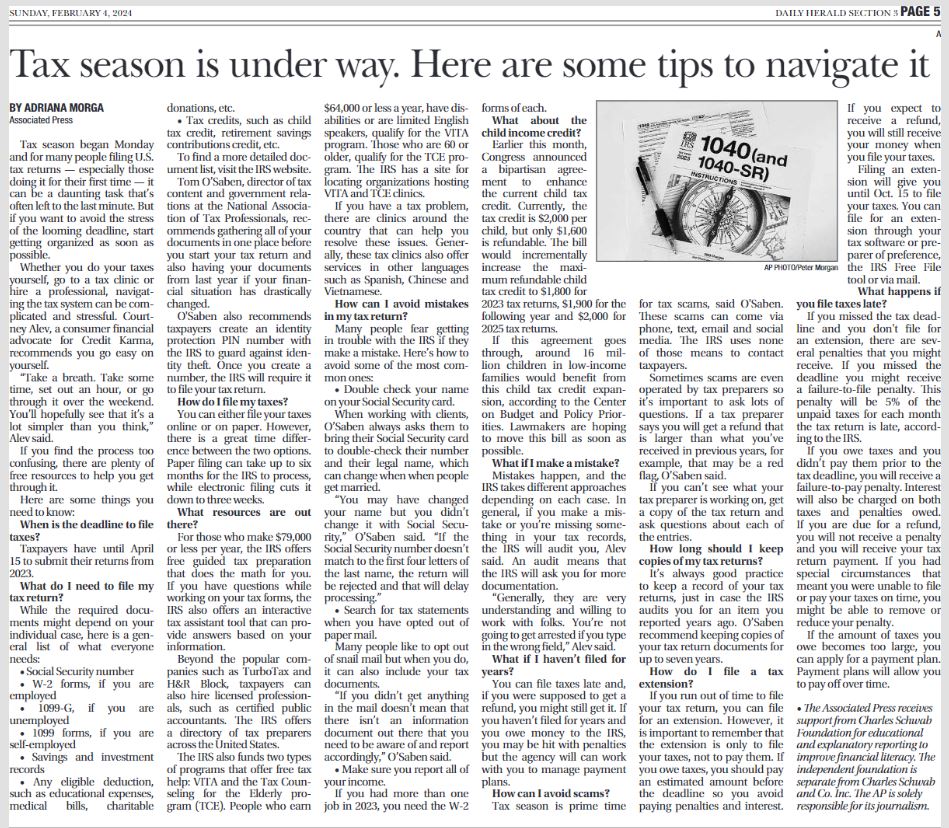1. Start Early:
Procrastination is the enemy when it comes to tax season. Starting early gives you ample time to gather necessary documents, double-check for accuracy, and seek assistance if needed. Avoid the last-minute rush by setting aside dedicated time each week to work on your taxes.
2. Organize Your Documents:
Gather all relevant financial documents such as W-2s, 1099s, receipts, and statements. Create a system for organizing these documents, whether it's using physical folders or digital storage. Having everything in one place will streamline the filing process and reduce the likelihood of missing important information.
3. Maximize Deductions and Credits:
Take advantage of all available deductions and credits to minimize your tax liability. Common deductions include charitable contributions, mortgage interest, and medical expenses. Additionally, be sure to explore tax credits for which you may be eligible, such as the Earned Income Tax Credit or Child Tax Credit.
4. Stay Informed About Changes:
Tax laws and regulations are subject to change, so it's essential to stay informed about any updates that may affect your filing status. Subscribe to reliable tax news sources or consult with a tax professional to ensure you're aware of any relevant changes and how they may impact your tax situation.
5. Consider Professional Assistance:
While many individuals opt to file their taxes independently, complex financial situations may benefit from professional assistance. Tax professionals can offer valuable guidance, ensure compliance with tax laws, and help maximize your deductions. Additionally, hiring a professional can provide peace of mind and save you time and stress during tax season.
6. Review Before Filing:
Before submitting your tax return, take the time to review it carefully for accuracy and completeness. Double-check all figures and calculations, and verify that you've claimed all applicable deductions and credits. A thorough review can help prevent errors that may result in audits or delays in processing.
7. File Electronically:
Filing your taxes electronically offers several advantages over traditional paper filing, including faster processing times and reduced risk of errors. Most tax preparation software platforms provide step-by-step guidance and automatically calculate your tax liability, making the process quick and efficient.
8. Plan for Next Year:
Use tax season as an opportunity to plan ahead for the next year. Evaluate your financial goals and make any necessary adjustments to optimize your tax strategy. Consider contributing to retirement accounts, establishing a Health Savings Account (HSA), or implementing other tax-saving strategies to minimize your tax burden in the future.
Conclusion:
Tax season doesn't have to be a source of stress and anxiety. By following these tips and staying organized, you can navigate tax season with confidence and ease. Whether you're filing as an individual or a business, proper preparation and attention to detail are key to a successful filing experience. Remember to start early, maximize deductions, stay informed about changes, and consider professional assistance if needed. With careful planning and execution, you can make tax season a manageable and even rewarding experience.
Here are some additional thoughts from the Daily Herald on February 4, 2024:
Tax season is under way. Here are some tips to navigate it. (dailyherald.com)



 RSS Feed
RSS Feed


